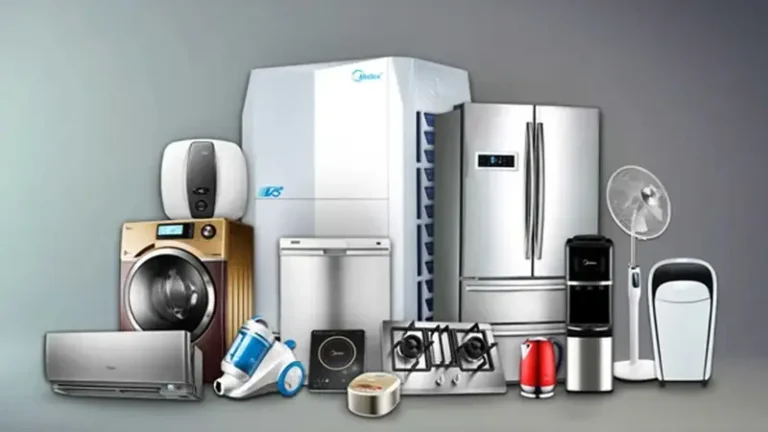Table of Contents
- Identifying Different Types of Home Appliance Emergencies
- Prioritizing Safety Measures
- Resetting and Troubleshooting Common Issues
- Regular Maintenance to Prevent Emergencies
- When to Call for Professional Help
- Avoiding Common Mistakes
- Effective Communication During Appliance Emergencies
- Conclusion
Identifying Different Types of Home Appliance Emergencies
Our everyday lives depend on our home appliances, so it can be rather distressing when they break down. Identifying the nature of the emergency is the first step to managing it efficiently. Common appliance emergencies include malfunctioning refrigerators, leaky washing machines, broken air conditioners, and sparking electrical appliances. Oftentimes, homeowners end up seeking AC emergency repair services.
Each type of emergency comes with specific warning signs. For example, a refrigerator failure might result in spoiled food, while a malfunctioning washing machine could lead to water damage. Recognizing these signs early can help you take swift action to mitigate potential damage.
Prioritizing Safety Measures
In any appliance emergency, your first priority should be safety. When it’s safe to do so, disconnect any appliance that is sparking or smoking. For gas-powered appliances, shut off the gas supply and ensure proper ventilation. Avoid using water to extinguish electrical fires, and keep a fire extinguisher nearby.
Prevent injuries by keeping the area around the appliance clear of obstacles. Educate family members on the basic safety steps to take during an appliance emergency. Prioritizing safety is crucial in averting mishaps and wounds.
Resetting and Troubleshooting Common Issues
Sometimes, a simple reset can solve the problem. For many appliances, unplugging and then plugging them back in acts as a reset. This can resolve minor software glitches or electrical problems. Before doing any resets, always refer to the user manual for detailed troubleshooting instructions.
For instance, look for obstructions in the drain line or filter if your dishwasher isn’t draining. If the washing machine leaks, inspecting the door seal or water supply hose could provide a quick fix. Familiarize yourself with basic troubleshooting methods to handle minor issues effectively.
Regular Maintenance to Prevent Emergencies
Regular maintenance can prevent many appliance emergencies. Clean your appliances regularly, check for any signs of wear and tear, and replace parts as needed. For instance, cleaning the refrigerator coils can improve efficiency and prevent overheating.
Similarly, servicing your air conditioner annually can prevent sudden breakdowns during peak seasons. Your appliances will last longer and function more safely and effectively with routine maintenance. Set a schedule for regular check-ups to keep your appliances in top condition.
When to Call for Professional Help
Knowing when to call for professional help is crucial. If you encounter a serious issue such as a major water leak, gas leak, or electrical problem, it’s best to call a professional immediately. Fixing these problems on your own, without the necessary knowledge, can be risky and might even do more harm.
For instance, if your air conditioner fails during a heatwave, contacting a reliable service for AC emergency repair can save you stress and prevent any health-related problems due to extreme heat. Professionals have the right tools and knowledge to diagnose and repair complex issues efficiently.
Avoiding Common Mistakes
Common mistakes during appliance emergencies include ignoring minor problems until they become big, attempting DIY repairs without proper knowledge, and not having a contingency plan. Avoiding these mistakes requires proactive effort and a willingness to seek professional help when needed.
For instance, ignoring a small leak in your washing machine can lead to significant water damage over time. Similarly, attempting to repair electrical issues without the right expertise can cause short circuits or fires. Being aware of these pitfalls helps you take the right actions promptly and safely.
Effective Communication During Appliance Emergencies
Effective communication is key during any emergency. Ensure that all family members know how to handle appliance emergencies and understand the basic safety steps. Designate roles for each member, such as contacting repair services or shutting off power/gas supplies.
For severe issues, have a list of emergency contacts ready, including professional repair services and utility companies. Establishing a clear line of communication and understanding protocols in advance ensures that everyone knows what to do in the event of an emergency.
Conclusion
Handling home appliance emergencies efficiently requires a combination of safety awareness, basic troubleshooting skills, and knowing when to seek professional help. Regular maintenance and effective communication can prevent many problems before they escalate. By taking these steps, you can manage appliance emergencies quickly and safely, minimizing inconvenience and potential damage to your home. Visit World Fame Magazzine for more details.
